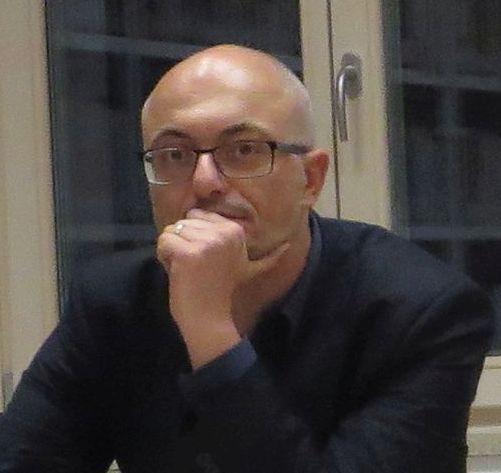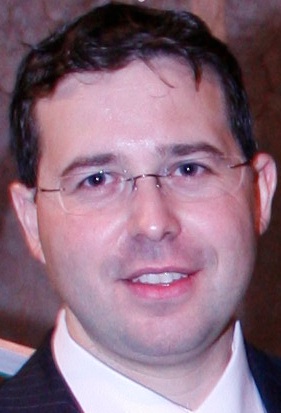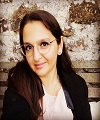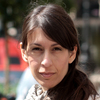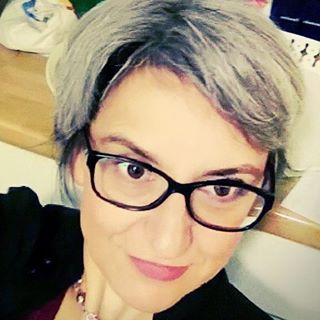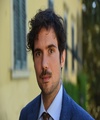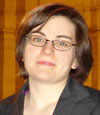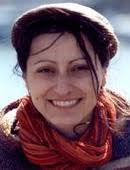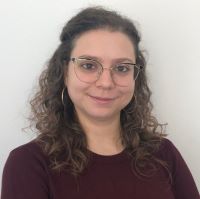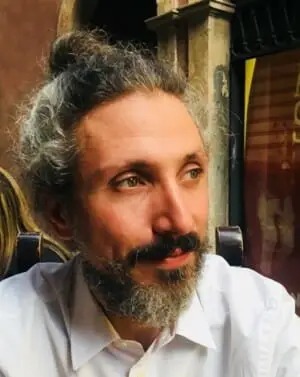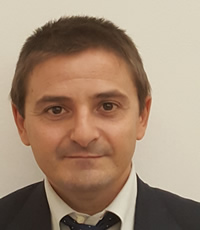Studying at the University of Verona
Here you can find information on the organisational aspects of the Programme, lecture timetables, learning activities and useful contact details for your time at the University, from enrolment to graduation.
Academic calendar
The academic calendar shows the deadlines and scheduled events that are relevant to students, teaching and technical-administrative staff of the University. Public holidays and University closures are also indicated. The academic year normally begins on 1 October each year and ends on 30 September of the following year.
Course calendar
The Academic Calendar sets out the degree programme lecture and exam timetables, as well as the relevant university closure dates..
| Period | From | To |
|---|---|---|
| CuCi IA | Sep 21, 2020 | Oct 31, 2020 |
| CuCi IB | Nov 9, 2020 | Jan 9, 2021 |
| CuCi IIA | Feb 15, 2021 | Apr 1, 2021 |
| CuCi IIB | Apr 14, 2021 | May 29, 2021 |
| Session | From | To |
|---|---|---|
| sessione d'esame invernale CuCi | Jan 11, 2021 | Feb 13, 2021 |
| sessione d'esame estiva CuCi | Jun 7, 2021 | Jul 24, 2021 |
| sessione d'esame autunnale CuCi | Aug 23, 2021 | Sep 18, 2021 |
| Session | From | To |
|---|---|---|
| sessione di laurea invernale 19-20 | Apr 7, 2021 | Apr 13, 2021 |
| sessione di laurea estiva 20-21 | Jul 5, 2021 | Jul 10, 2021 |
| Sessione autunnale di laurea a.a. 2020/21 | Nov 8, 2021 | Nov 13, 2021 |
| Sessione straordinaria di laurea a.a. 2020/21 | Mar 28, 2022 | Apr 2, 2022 |
| Period | From | To |
|---|---|---|
| Festa di Ognissanti | Nov 1, 2020 | Nov 1, 2020 |
| Chiusura Ateneo ponte Immacolata | Dec 7, 2020 | Dec 7, 2020 |
| Festa dell'Immacolata | Dec 8, 2020 | Dec 8, 2020 |
| Vacanze di Natale | Dec 24, 2020 | Jan 6, 2021 |
| Vacanze di Pasqua | Apr 2, 2021 | Apr 6, 2021 |
| Festa della liberazione | Apr 25, 2021 | Apr 25, 2021 |
| Festa del lavoro | May 1, 2021 | May 1, 2021 |
| Festa del Santo Patrono | May 21, 2021 | May 21, 2021 |
| Sospensione delle lezioni | May 22, 2021 | May 22, 2021 |
| Festa della Repubblica | Jun 2, 2021 | Jun 2, 2021 |
| Vacanze estive | Aug 9, 2021 | Aug 15, 2021 |
Exam calendar
Exam dates and rounds are managed by the relevant Culture and Civilisation Teaching and Student Services Unit.
To view all the exam sessions available, please use the Exam dashboard on ESSE3.
If you forgot your login details or have problems logging in, please contact the relevant IT HelpDesk, or check the login details recovery web page.
Should you have any doubts or questions, please check the Enrollment FAQs
Academic staff
 giovanni.bernardini@univr.it
giovanni.bernardini@univr.it
 marco.carradore@univr.it
marco.carradore@univr.it
 francesca.cecconi@univr.it
francesca.cecconi@univr.it
 monica.cristini@univr.it
monica.cristini@univr.it
 paolodalben@tin.it
paolodalben@tin.it
Hatzikiriakos Alexandros Maria
 alexandrosmaria.hatzikiriakos@univr.it
alexandrosmaria.hatzikiriakos@univr.it
 gianluca.lanfranchi@univr.it
gianluca.lanfranchi@univr.it
 giulia.pedrucci@univr.it
giulia.pedrucci@univr.it
 valentina.romanzi@univr.it
valentina.romanzi@univr.it
 alberto.scandola@univr.it
alberto.scandola@univr.it
 sorayaelizabeth.shamloo@univr.it
sorayaelizabeth.shamloo@univr.it
 nicola.turrini@univr.it
nicola.turrini@univr.it
Study Plan
The Study Plan includes all modules, teaching and learning activities that each student will need to undertake during their time at the University.
Please select your Study Plan based on your enrollment year.
1° Year
| Modules | Credits | TAF | SSD |
|---|
2° Year activated in the A.Y. 2021/2022
| Modules | Credits | TAF | SSD |
|---|
1 module among the following3° Year activated in the A.Y. 2022/2023
| Modules | Credits | TAF | SSD |
|---|
2 modules among the following| Modules | Credits | TAF | SSD |
|---|
| Modules | Credits | TAF | SSD |
|---|
1 module among the following| Modules | Credits | TAF | SSD |
|---|
2 modules among the following| Modules | Credits | TAF | SSD |
|---|
Legend | Type of training activity (TTA)
TAF (Type of Educational Activity) All courses and activities are classified into different types of educational activities, indicated by a letter.
Type D and Type F activities
| years | Modules | TAF | Teacher |
|---|---|---|---|
| 1° 2° 3° | Laboratory of Theatrical Criticism | F |
Simona Brunetti
(Coordinator)
|
| years | Modules | TAF | Teacher |
|---|---|---|---|
| 1° 2° 3° | Laboratory of Theatrical Criticism | F |
Simona Brunetti
(Coordinator)
|
| years | Modules | TAF | Teacher | |
|---|---|---|---|---|
| 1° | Data elaboration laboratory | F |
Rossana Cotroneo
(Coordinator)
|
|
| 1° 2° 3° | "Common world. 2022 Arendt Seminars | F |
Olivia Guaraldo
(Coordinator)
|
|
| 1° 2° 3° | History of comics | F |
Claudio Gallo
(Coordinator)
|
|
| years | Modules | TAF | Teacher | |
|---|---|---|---|---|
| 1° | Data elaboration laboratory | F |
Rossana Cotroneo
(Coordinator)
|
|
| 1° 2° 3° | "Common world. 2022 Arendt Seminars | F |
Olivia Guaraldo
(Coordinator)
|
|
| 1° 2° 3° | PhD Conference 2021: Margins and Forgotten places | F |
Simona Brunetti
(Coordinator)
|
|
| 1° 2° 3° | Creative Writing Laboratory | F |
Veronica Gobbato
(Coordinator)
|
|
| 1° 2° 3° | Journalistic Writing Laboratory | F |
Andrea Capuzzo
(Coordinator)
|
|
| 1° 2° 3° | History of comics | F |
Claudio Gallo
(Coordinator)
|
|
Italian literature for Journalism and Publishing (i) (2022/2023)
Teaching code
4S008059
Teacher
Coordinator
Credits
6
Language
Italian
Scientific Disciplinary Sector (SSD)
L-FIL-LET/10 - ITALIAN LITERATURE
Period
1 A, 1 B
Learning objectives
The main objective of the course is to introduce students to the study of Italian literature through the direct analysis of a corpus of texts representative of a theme of particular importance. Specific attention will be paid to the relationships between literature, publishing and journalism.
At the end of the course the student will be able to
- contextualize, understand and comment autonomously a literary text;
- look at the literary text as a complex organism, in constant dialogue with other areas of Western culture and in particular in close relationship with the publishing and communication world that allow its diffusion and success;
- to move with competence within the framework of the Italian literary tradition and its main thematic and formal characteristics, with particular attention to the intersections with the history of journalism and communication, especially publishing.
Prerequisites and basic notions
Knowledge of the Italian language
Program
The first part of the course will reconstruct the history of journalism in Italy from the eighteenth century to the Unification, focusing on to the social, political and cultural aspects, as well as the communicative, formal and stylistic features. The second part will define the relationships and connections between journalism and literature in Dino Buzzati (1906-1972), in particular through the analysis of crime news articles written over thirty years for the “Corriere della Sera” and the “Corriere d’Informazione ”
The slides projected in class and critical readings will be available to students on the e-learning platform. In addition to the texts mentioned in the bibliography, other indications will be provided during the lessons
Erasmus students must contact the teacher to agree on a program
Bibliography
Didactic methods
Lectures (36 hours)
Exercises in reading and interpreting literary texts
Learning assessment procedures
The proof will be a oral test. For attending students is projected a mid-term test
The lecture notes and slides (available on the e-learning platform) are integral part of the exam material
The detailed exam program will be published on the platform at the end of the course
Erasmus students must contact the teacher about the evaluation methods
Evaluation criteria
The proof will check the possess of knowledges and competences acquired during the course; to evaluate linguistic skills, the ability to critically discuss and textual analysis.
Contents: texts read and analyzed during the course; cultural and biographical contexts involved in texts' genesis; theme aspects concerning the relationships and connections between journalism and literature from the eighteenth to the twentieth century.
Criteria for the composition of the final grade
The mark will be expressed out of 30 (thirties)
Exam language
italiano
Career prospects
Module/Programme news
News for students
There you will find information, resources and services useful during your time at the University (Student’s exam record, your study plan on ESSE3, Distance Learning courses, university email account, office forms, administrative procedures, etc.). You can log into MyUnivr with your GIA login details: only in this way will you be able to receive notification of all the notices from your teachers and your secretariat via email and soon also via the Univr app.
Graduation
Documents
| Title | Info File |
|---|---|
|
|
pdf, it, 263 KB, 09/02/22 |
List of theses and work experience proposals
| theses proposals | Research area |
|---|---|
| Laureandi Scienze della Comunicazione: vademecum | Various topics |
| Stage | Research area |
|---|---|
| L'iter del libro in biblioteca | Various topics |
| Proposte stages - Centro di ricerca Skenè | Various topics |

 +39 045 802 8459
+39 045 802 8459
